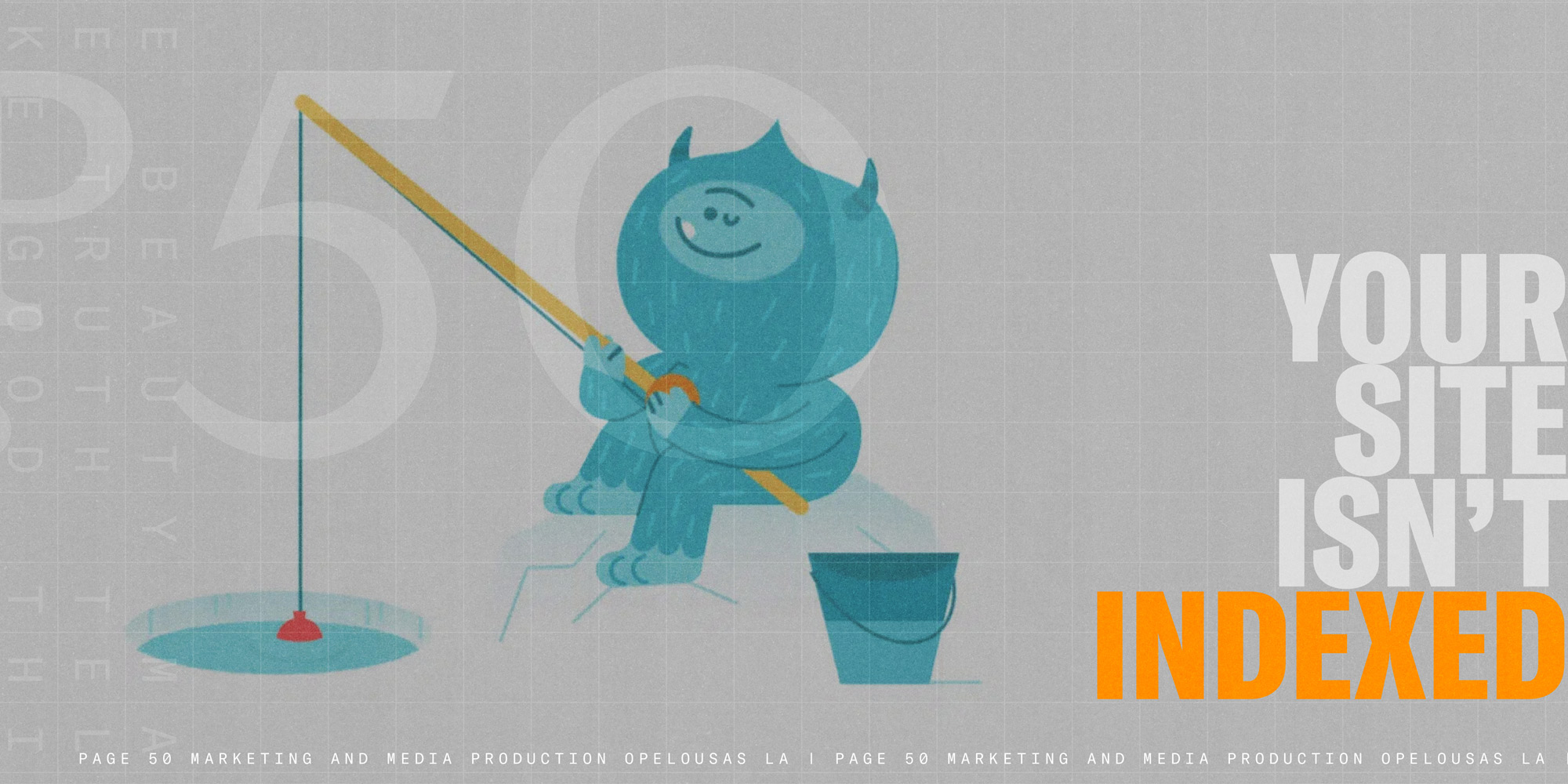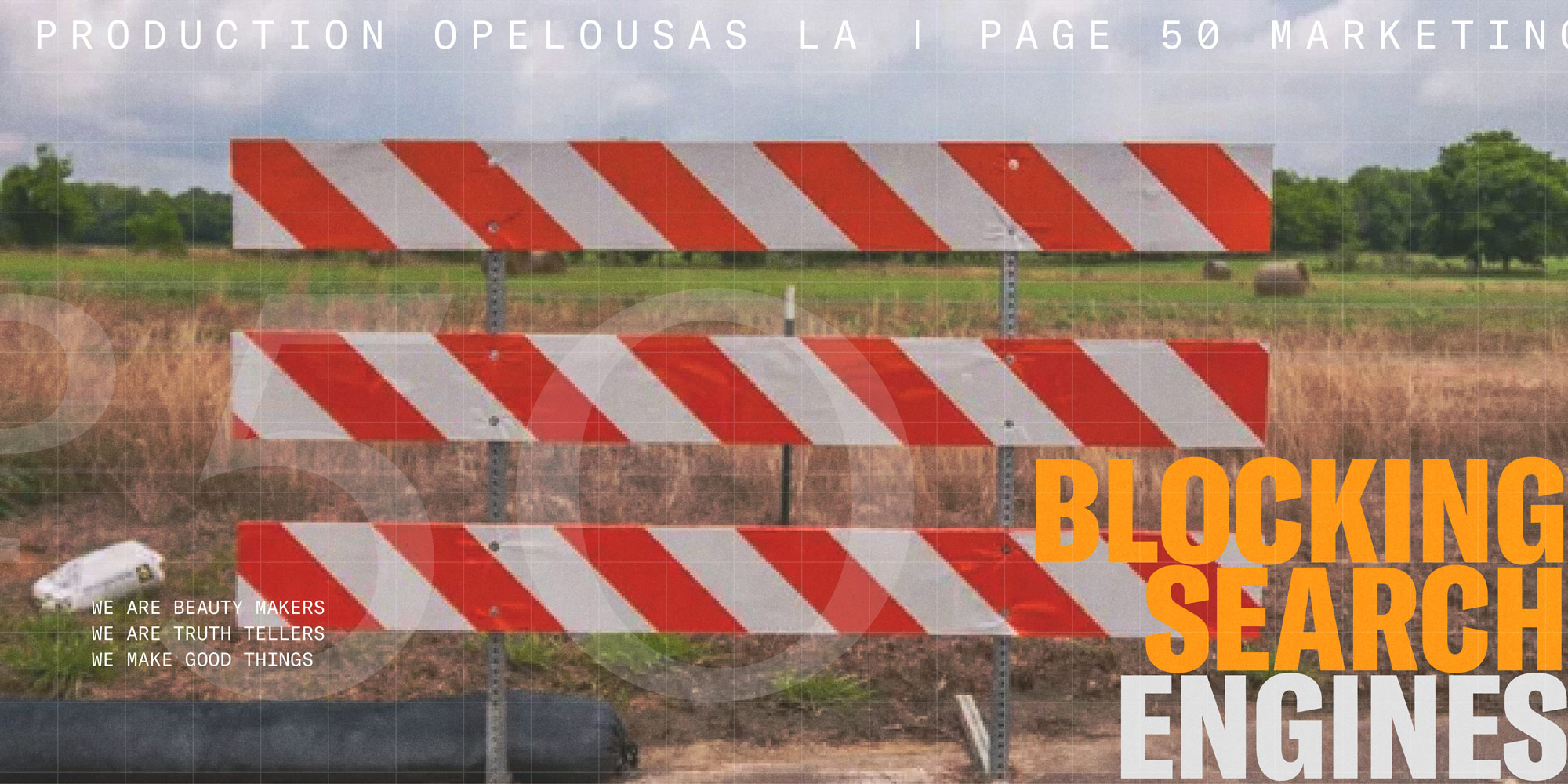
TL;DR
If your website isn’t indexed, is brand new, is blocking search engines, is low-quality, lacks authority, has poor SEO, or violates Google’s terms, it won’t rank in search results.
Let’s dig into some of the common reasons and their solutions.
1.Your Site Isn’t Indexed
 Indexing a website is the process by which search engines like Google organize information, allowing it to consider those pages for search results in the future.
Indexing a website is the process by which search engines like Google organize information, allowing it to consider those pages for search results in the future.
Search engine bots or (crawlers) visit websites and explore their pages, following links and gathering information. The information from the web pages is then stored in their database.
Basically, it’s how search engines build their “index” of the web, making it possible to find and display relevant content when users search.
If Google hasn’t discovered your site or added it to its search index, you won’t be “googleable”. You can check whether your site has been indexed by using the site operator or Google Search Console’s URL Inspection tool.
If you don’t see any results using the site operator, your website may not be indexed or the indexing process is still ongoing.
Solution
Submit your site to Google Search Console and request indexing of your pages. You can also submit your sitemap to Google Search Console to help it crawl and index your website more efficiently. Make sure your website follows Google’s policies and guidelines to avoid indexing issues.
2. Your Site Is Too New
 New websites often take days or weeks to appear in search results. Google needs time to crawl and rank your content.
New websites often take days or weeks to appear in search results. Google needs time to crawl and rank your content.
Solution
Check Google Search Console to make sure you didn’t miss anything. Then wait. Submit a sitemap if you haven’t already.
3. Your Site Is Blocking Search Engines
 Your site may have a noindex tag or blocked in robots.txt file. A robots.txt file is a simple text file placed at the root of a website that instructs search engine crawlers on which parts of the site they can or cannot access.
Your site may have a noindex tag or blocked in robots.txt file. A robots.txt file is a simple text file placed at the root of a website that instructs search engine crawlers on which parts of the site they can or cannot access.
Blocking unnecessary crawling helps reduce the strain on your website’s servers and directs crawlers to the most important pages. This can help with SEO and speed up indexing, but accidentally blocking the entire site will stop google from indexing it.
Solution
Check your website’s robots.txt file. Add “/robots.txt” to the end of the website’s domain in your web browser. (e.g., www.example.com/robots.txt). If a robots.txt file exists, it will be displayed in your browser. Make sure it’s not blocking / (the entire site). If no robots.txt file is found, the browser will likely return a “404 Not Found” error or a similar message.
4. Thin or Low-Quality Content
 If your pages have very little or very generic content, Google may ignore them. Your visibility is largely dependent on search engines finding your site to be trustworthy, authoritative, and relevant. If you don’t have anything to say, google won’t bring you into the conversation.
If your pages have very little or very generic content, Google may ignore them. Your visibility is largely dependent on search engines finding your site to be trustworthy, authoritative, and relevant. If you don’t have anything to say, google won’t bring you into the conversation.
Solution
Add useful original content to each page. Make sure each webpage has at least 300–500 words of clear, valuable information. Not fluff or crammed full of keywords- real content about your real business.
5. No Backlinks or Authority
 Google may not prioritize your site if it has no inbound links or online reputation. A website that isn’t connected to any other (legitimate) sites looks suspicious and will therefore rank lower.
Google may not prioritize your site if it has no inbound links or online reputation. A website that isn’t connected to any other (legitimate) sites looks suspicious and will therefore rank lower.
Solution
Build connections. Share your site on social media. Get listed in directories or get backlinks from other sites. Create valuable content people will want to share on other sites, that leads searchers back to yours.
6. Poor SEO or Missing Keywords
SEO (search engine optimization) is building and maintaining your business’s website so as to show Google that you have what your target audience is looking for. Strong SEO helps you show up higher in the search results. If your content doesn’t include relevant search terms, or if it’s hard to read, Google won’t know what to rank you for.
Solution
Use SEO basics: clear page titles, headers (H1/H2), meta descriptions, and keywords. If you’re using a CMS, use tools like Yoast (WordPress) or RankMath.
7. Google Penalty or Manual Action
 This one is unlikely, but if you used shady tactics (duplicate content, keyword stuffing), Google may penalize you.
This one is unlikely, but if you used shady tactics (duplicate content, keyword stuffing), Google may penalize you.
Solution
Check Google Search Console for warnings or manual actions, fix any violations, and submit for reconsideration.
For more detailed troubleshooting, here’s what Google has to say. https://support.google.com/webmasters/answer/7474347?hl=en
If you’re still stumped or need help with your website, call us.